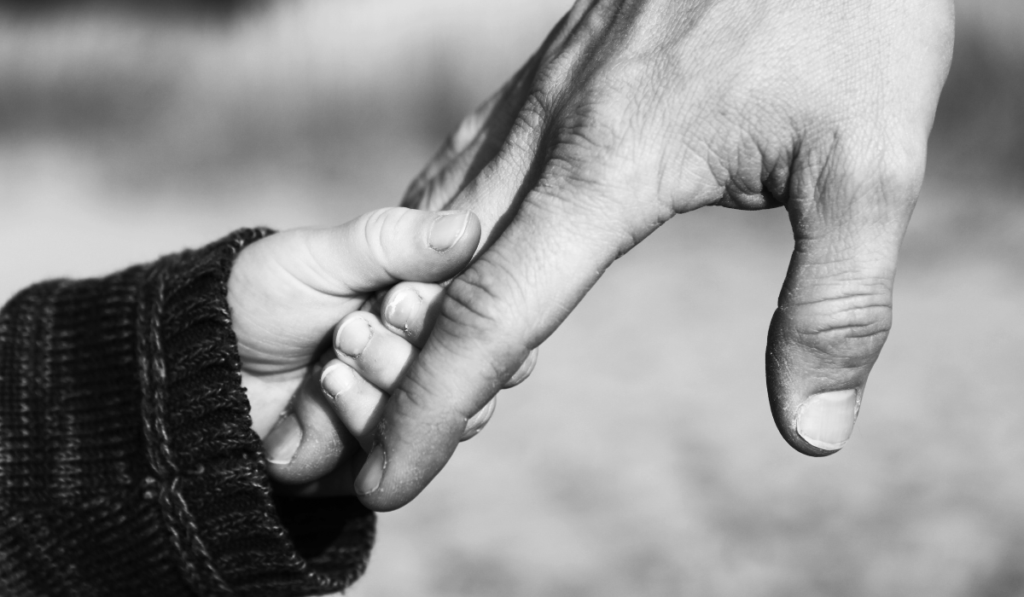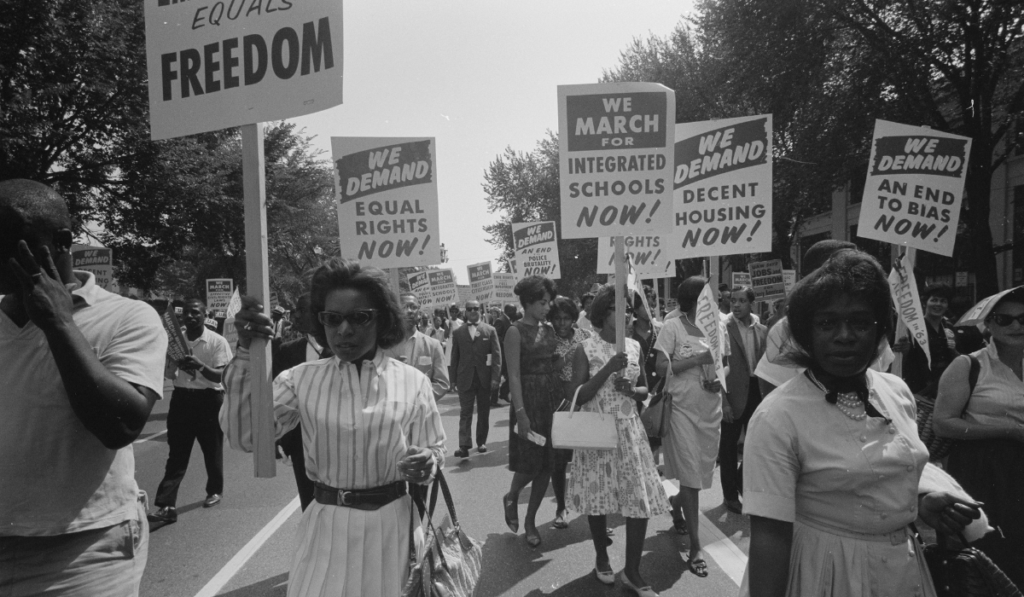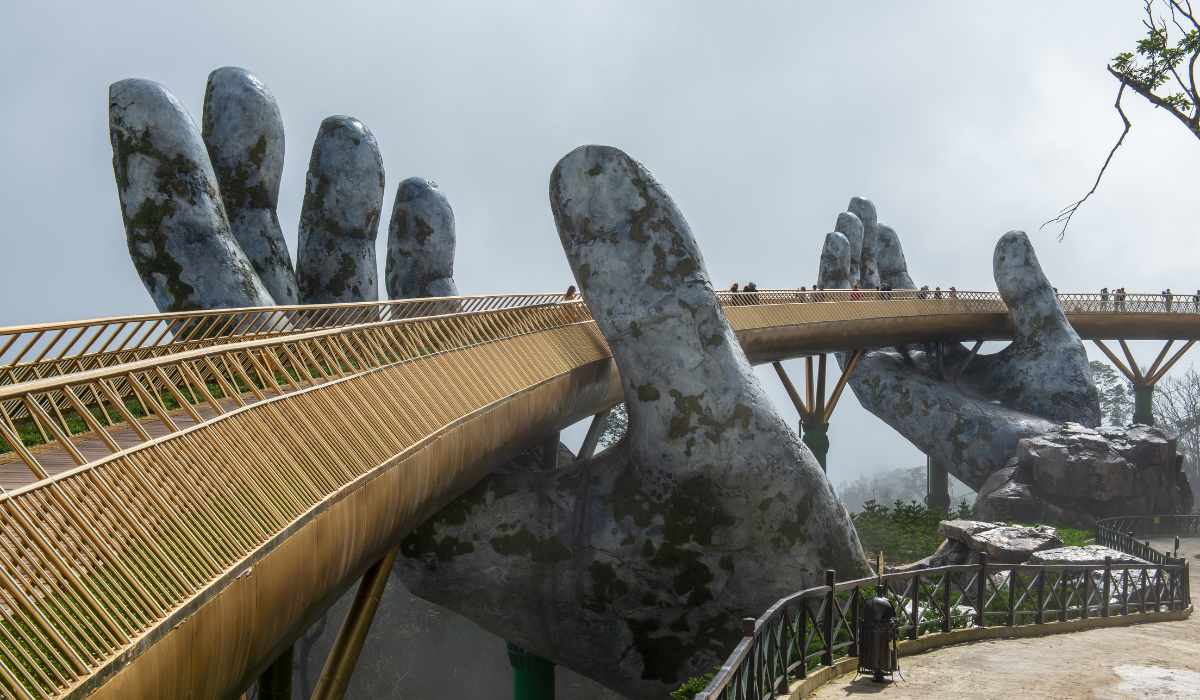john a. powell Discusses the Power of Bridging for a Fractured World
Bioneers | Published: December 17, 2024 JusticeNature, Culture and SpiritSocial Justice Article

How do we create connection in a world where political forces profit from division, and “belonging” feels, for many, like a distant ideal? In this thought-provoking conversation, civil rights scholar john a. powell discusses how the concept of “bridging” can create curiosity and understanding when authoritarian political leaders are increasingly seeking the opposite. Instead of “othering,” which frames people as threats, or “breaking,” which excludes them, powell discusses how bridging can help us better communicate and create a world where we all belong.
john a. powell is a renowned scholar and longtime activist and thought leader in the areas of civil rights, structural racism, housing, constitutional law, equality, and democracy. He is the Director of the Othering & Belonging Institute at UC, Berkeley, where he holds the Robert D. Haas Chancellor’s Chair in Equity and Inclusion and is a Professor of Law, Ethnic Studies, and African American Studies. He is the author of several books, including, most recently, “The Power of Bridging: How To Build A World Where We All Belong,” (with Rachelle Galloway-Popotas) which came out this month. Read an excerpt from “The Power of Bridging” here.
Bioneers: Could you begin by discussing how “bridging” differs from traditional approaches to conflict resolution or dialogue?
john a. powell: Conflict resolution, as the name suggests, is resolving conflict, but that’s not the purpose of bridging. There are different levels of bridging, and the conflict may persist. Some of it is instrumental, in trying to get a person to see something or understand something, but at a deeper level, bridging is really about listening deeply to someone, listening to their story. Listen with your heart to their humanity. There’s a South African word called sawubona, which means “I see you.” Basically, bridging is about seeing the other person as a human being, not as someone to be persuaded. Bridging doesn’t mean you agree with someone. It doesn’t mean the conflict has all gone away, but it’s an opening to see their humanity and to share humanity.
Bridging is about seeing the other person as a human being, not as someone to be persuaded. Bridging doesn’t mean you agree with someone.
Bioneers: What attitudes or perspective does one need to cultivate to bridge effectively?
powell: There are a number of efforts now, including my book, regarding how to bridge. There’s not one way. It also depends if you’re bridging with an individual, group or institution — or even yourself. What’s helpful, though, is openness, a certain curiosity. To really want to know someone’s story. As I said, it’s not argumentation; it’s not “tell me something so I can demonstrate to you how you’re wrong.” I sometimes say right and wrong is about the mind, about ego. Bridging is about connection, about the heart. It’s connecting at the heart level. It’s really just asking, what’s this person’s story? How do they approach life? What’s important to them? How do they suffer? That kind of curiosity and openness is key.
There are also different kinds of bridges, long bridges and short bridges. Because a bridge is short doesn’t mean it’s easy, and we can’t bridge all the time. It’s an aspiration, right? Sometimes we’re too hurt; sometimes we’re too angry. Bridging doesn’t mean you’re not hurt or angry, or that you agree with someone, but it’s an orientation. This is where we’re trying to get to. We know that breaking and othering don’t work. Bridging has to be not simply what we do, but who we are. We’re really trying not to dominate each other or the Earth but to live in harmony. In that sense, the concepts are consistent with many great spiritual, religious and moral teachings. It’s just putting a pin in it and being explicit about it right now. That’s the best way we get justice. That’s where we deal with inequality.

Bioneers: What role can stories play in helping people connect across differences?
powell: Most of the differences we actually focus on are stories themselves. If we have a rigid story, if we have a single story, and we don’t realize it’s a story, it makes it hard to bridge. In reality, we have multiple stories and multiple identities. The idea is to hold our story loosely, not abandon it, but to hold it among many stories and among the many stories of others. One of Bob Marley’s songs has a line, to paraphrase him, that says, “Every person thinks their burden is the heaviest.” So we know our own stories, we know our own suffering, but we don’t know the stories of others. Sometimes we think everybody should be concerned about our story, but we’re not concerned about anybody else’s story. Again, it’s not saying I’m abandoning my story, but I realize that I have a story and you have a story. I suffer and you suffer, and we’re constantly making new stories. So part of bridging is an invitation not only to listen to the other person’s story and share my story with them, but also possibly to make a new story.
If we have a rigid story, if we have a single story, and we don’t realize it’s a story, it makes it hard to bridge. In reality, we have multiple stories and multiple identities.
Bioneers: In the book, you emphasize belonging as a fundamental need. How does this relate to longstanding efforts to address systemic inequities and historical injustices?
powell: Especially in a rich country like the United States, poverty is an expression of not belonging. It’s not being held in deep regard. It’s not being seen as a full human being. It’s not being seen as worthy. When (Ronald) Reagan was president, he talked about the truly deserving poor and the undeserving poor, and so the stories with inequity persist in what sociologist Charles Tilly called “durable inequality.” It always has this story with it, and the story can be “those people” — already the other. They’re not me, it’s those people that are undeserving. They’re trying to cheat us, they’re trying to take our jobs, they’re lazy, and, of course, we shouldn’t share with them. The people we share with are family, people who are “good people.” The thing about “those people” is we actually don’t know their story. The “other” is a flat representation of a person. What do we know about a homeless person? Do we know what kind of vegetables they like? Do we know what they were doing before they were homeless? Do we know if they have any children? Do we know if they ever had a broken heart? Part of bridging and part of listening to each other’s stories is to see the complexity of humanity, which invites a belonging. We all belong. We’re not singular.
The thing about “those people” is we actually don’t know their story.
I frequently say we’re literally born physically attached, not only conceptually, but physically attached to another human being. There’s all this research now about how mushrooms and plants are all interconnected. We’re also connected. We don’t survive, we don’t thrive, we don’t grow, unless we’re connected. Belonging, as Maslow suggested, is one of our basic human needs. Some of his students say it’s more basic than food and safety because if we don’t belong, we don’t get food and safety. It shows up everywhere. Look at isolation; it’s the equivalent of smoking two packs of cigarettes a day. It’s associated with depression and suicide. I was just in India, where I was speaking to people from 20 different countries. Virtually every country and every culture has some expression of belonging. It’s just so fundamental. We’ve named it, but belonging is not new. It’s in the Christian faith, Buddhism, Islam, Jainism. It’s in the golden rule and in every major expression of moral codes, but almost all of those expressions have belonging with othering. Christians have the sinner, Muslims have the infidel, the civilized have the barbarian. We create belonging, but we create a categorical other at the same time. What we’re saying is belonging without othering; there is no other. The other is an illusion. The other is a story we tell.

Bioneers: How do you recommend individuals or groups navigate the challenges of discourse across deeply entrenched political or ideological divides?
powell: You asked about inequality earlier. Part of what we think about inequality is you’re unequal in terms of your belongingness — not just in your income or your education — so society doesn’t owe you anything. The most important thing a society or community extends to its members is belonging and participation. Everything goes from there, or is, of course, denied by that. We’re in a world now where there’s a lot of breaking and othering, and not just at the individual level. It’s at the group level, the institutional level, the structural level, the national level. We’ve weaponized it, and so that makes it hard, right? Because we have whole nation-states saying “these people” don’t belong. Fill in the gap. It could be these people who are transgender, as we’ve seen in the last election. Or people who are brown, people who are white, people who have an accent, people who don’t have kids. The process of othering is a sociological process, so we can make it up. There’s no natural other. Once we make it up, though, the effects of othering are quite real. Once it’s there, it’s hard to see it. It’s hard to see race as a story. It’s hard to see money as a story. When you’re living in the midst of that story, where the story is about everybody being other, and we’re creating smaller and smaller “wes,” it’s easy to get caught in that, but it’s important to remember that everyone belongs.
The process of othering is a sociological process, so we can make it up. There’s no natural other. Once we make it up, though, the effects of othering are quite real.
How do we begin to first hold on to that and then practice it? How do we make sure our institutions reflect that? We’ve done some work in that regard. When we think of something like the American Disabilities Act, which says that if people are going to belong, they have to be able to get into the building — we actually say “designed for belonging.” If people are visually impaired or speak a different language, they belong. Some people will get confused and say, “Well, you’re in America, you should speak English.” Everyone has characteristics that can be used to say they’re other.
There are other areas where we’ve started doing what we need to do. Think of Title IX in sports, saying women and girls should have the same rights as boys and men. Think of religion. We say someone shouldn’t be discriminated against because they’re Catholic, Protestant, Jewish, atheist. That’s an expression of belonging. It’s saying that even if you have these behaviors, these characteristics, you still belong. Your life still counts. Think of countries like Canada, which have eliminated the death penalty, saying, even if you’ve done something terrible or despicable, you’re still a human being. You still belong. We can practice it at different levels, and sometimes, because we’re individually oriented, we think about it just interpersonally, which is important, but it’s only part of the story.
We have to think about whether our institutions, our cultures and our structures are promoting or denying belonging. There are hundreds of examples. For example, structures are not neutral. In the 50s and 60s, our porches were all in the front, so the community naturally moved in and out of each other’s lives. Walk down the street and you see Miss so-and-so having lemonade, and she’d ask you about your kids. At some point we started building patios in the back, so now we don’t see each other. When there are cracks or breaks in the container of the things holding us, then no one feels like they belong. Everyone feels other. That’s what’s happening now. A lot of the othering and breaking that’s happening is actually breaking to belong. Some people talk about how they’re afraid the other would destroy their belongingness. The Proud Boy says, referring to a Nazi trope, the Jews will not replace us. It’s not real, but it’s fear of the other and not belonging that creates breaking.
Bioneers: How would you recommend people address that fear of certain “others,” which, in some cases, is encouraged by the institutions or governments?
powell: Part of it is stories. There’s external reality, what people call objective reality, and there’s internal or subjective reality, and what gets missed in that formulation is meaning, which is made by stories. So, yes, the United States is a more diverse country now. What does that mean? Does it mean that white people should be afraid? Does it mean that Mexicans are coming to get us? Does it mean that Haitians are eating our cats? The meaning is what’s important. Stories are how we propagate meaning, and stories are overly represented by leadership. When we don’t understand what’s happening in the world, we look to influencers, stories, culture and religion. Trump and other people who have a large platform (provide meaning). So, part of the solution we can do ourselves, by not participating in breaking stories and stories about the other and instead being curious. But we also need leaders to do it. We also need our institutions to do it. We need to put a symbolic stake in the ground that everybody belongs.
Stories are how we propagate meaning, and stories are overly represented by leadership.
We’ve done that before. Think about this: In the late 1700s, Thomas Jefferson, who was a slaveholder, helped pen the words in our founding document that all people are created equal. How can he say that when he has hundreds of people enslaved? Yet, some historians have said that’s the most consequential phrase in U.S. history. It orients us in a certain way. It gives us something to move toward or aspire toward. It gives us a way of evaluating our current actions. We’re rethinking it now, but for the most part, the country has grappled with some concept of equality that Jefferson would be shocked by — a Black, Asian woman running for president. (Martin Luther) King said the moral arc of the universe is long but it bends toward justice. It doesn’t bend by itself. We bend it. Sometimes it bends toward justice, sometimes it bends toward injustice. Belonging and bridging is a way to bend it not just toward justice but toward belonging. It really is a long arc; 500 years ago, the whole world was basically enslaved. We have a long way to go, but we’ve come a long way. The book is not trying to be pollyanneish, and just say that everything’s fine. It’s not. We have work to do, but this is the work.
(Martin Luther) King said the moral arc of the universe is long but it bends toward justice. It doesn’t bend by itself. We bend it.
Bioneers: Why do you feel bridging is particularly urgent given the current polarized political climate?
powell: Because breaking and othering have been weaponized. We’re starting to believe those stories, and they’re being shouted from the highest halls of power in our country — that some people don’t belong. Think about the Middle East. The fight about the Middle East is about who belongs there. That’s what war oftentimes is about: who belongs? Think about fights in Europe for years, or think about segregation. Segregation is an expression of saying some people belong, some don’t. Think about anti-miscegenation laws, which were prominent in the United States until 1967, which said two people of a different race are not allowed to marry. We’ve had this anxiety for years, and we thought we had wrestled it to the ground. Now it’s actually being validated by the most powerful people in society, from Elon Musk to Donald Trump. It’s become seductive. It’s become okay to sort of flirt with this solution, and it’s extremely dangerous.

Bioneers: Is there something that gives you hope now amid all this conflict and the institutional and governmental othering that is happening?
powell: I don’t really organize around despair or hope, but if I were to, I would say people (give me hope). In many ways, even the breaking and othering that’s happening, if you scratch the surface, it’s a cry for belonging. It’s a distorted cry; they’re being fed the wrong thing, but people are desperate and part of it is the world keeps changing, and more and more of us feel like we don’t belong. But the solution is not, therefore, to attack each other. The solution is not to turn on each other but to turn toward each other, and I think we’re capable of doing that. There’s great work happening, even in the midst of these difficult times.
The last thing I’ll leave you with is this. I talked about the Declaration of Independence claiming equality at the time that enslavement was at its zenith in the United States. When people think about the early 1950s and the United States, they think about Rosa Parks, the Reverend Doctor King and the Civil Rights Movement. They don’t think about (U.S. Sen. Joseph) McCarthy. They don’t think about the House Un-American Activities Committee. They don’t think about the FBI locking people up and spying on people. Those events were happening at the same time, and yet, when we think back on the 50s, most of us don’t think about McCarthy. We think about the rays of hope that were happening at the same time as McCarthyism. At the same time that our government was turning on people, the Civil Rights Movement was being born. In some ways, that’s where we are today. There’ll be rays of hope in this darkness, and I’m hoping that they will sprout to something huge, so that 30 years from now, this sort of authoritarian-othering impulse would just be a blip, and we’ll be at a different place.
Other Bioneers Content from john a. powell
- Bioneers presentation: Belonging without Othering: The Story of Our Future
- Book excerpt: Belonging without Othering: How We Save Ourselves and the World
- Podcast: Creating a World Where Everyone Belongs: From a Change of Heart to System Change
- Book excerpt: ‘The Power of Bridging: How to Build a World Where We All Belong’

